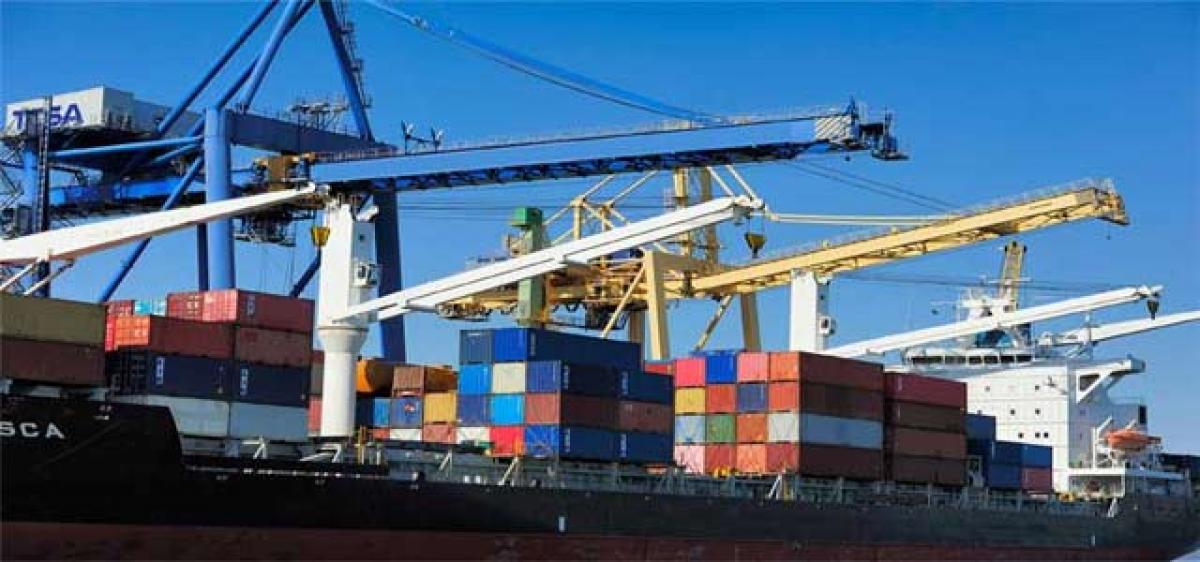Live
- Apple Intelligence now features Image Playground, Genmoji
- National Energy Conservation Day: Fostering a sustainable future
- RG Kar issue: Day-long protests in Kolkata today on bail to Ghosh, Mondal
- Plans afoot to bring EPFO service at par with banking: LabourSecy
- vivo unveils X200 series of mobiles
- Sensex, Nifty stage a surprise recovery
- Govt commits to tackling maternal healthcare, deaths
- Capex to touch Rs 11.11-trn target this fiscal
- HCLTech launches TechBee
- Industrial growth recovery expected in H2
Just In

Proposing significant changes in the 12 major ports in the country, the Union Cabinet cleared Major Port Trust Authorities bill, 2016, on December 14.
Visakhapatnam: Proposing significant changes in the 12 major ports in the country, the Union Cabinet cleared Major Port Trust Authorities bill, 2016, on December 14.
The bill, once passed by Parliament, will give port boards more autonomy and flexibility, claimed the Cabinet members. They said future public-private partnership (PPP) operators would be free to fix tariffs based on market conditions and would simply need to inform the port authority.
"The bill aims at giving more autonomy and flexibility to major ports and bringing in professional approach in their governance," a port official said. But the experts say it will undermine the national interests and completely ruin the public sector ports.
In a resolution passed at the 9th National Conference of Water Transport Workers Federation of India held here recently, the trade union leaders demanded the Union government withdraw the decision in the interest of the nation.
They said the government was determined to and prejudiced in making the ‘Port Authority’ in place of Port Trust and Board of Management in place of board of trustees at each port. The provisions of the new Act will lead to privatisation of all the ports.
Besides, it will open gates to corporate entities to snatch ports with huge assets, which include 2.58 lakh acres prime land and accumulated surplus wealth. It will also have adverse impact on the employees and pensioners.
Expressing fears on how the ports will be privatised, general secretary of United Port and Dock Employees Union V S Padmanabha Raju said there was no provision in the new bill to include major stake holders like State governments, railways, defence, revenue and customs in the board of management.
The new management will have one director each from the labour department and the Central government, three functional directors and five independent directors. “It is the independent directors who will call the shots and lead to divestment leading to privatisation,’’ Padmanabha Raju said.

© 2024 Hyderabad Media House Limited/The Hans India. All rights reserved. Powered by hocalwire.com







